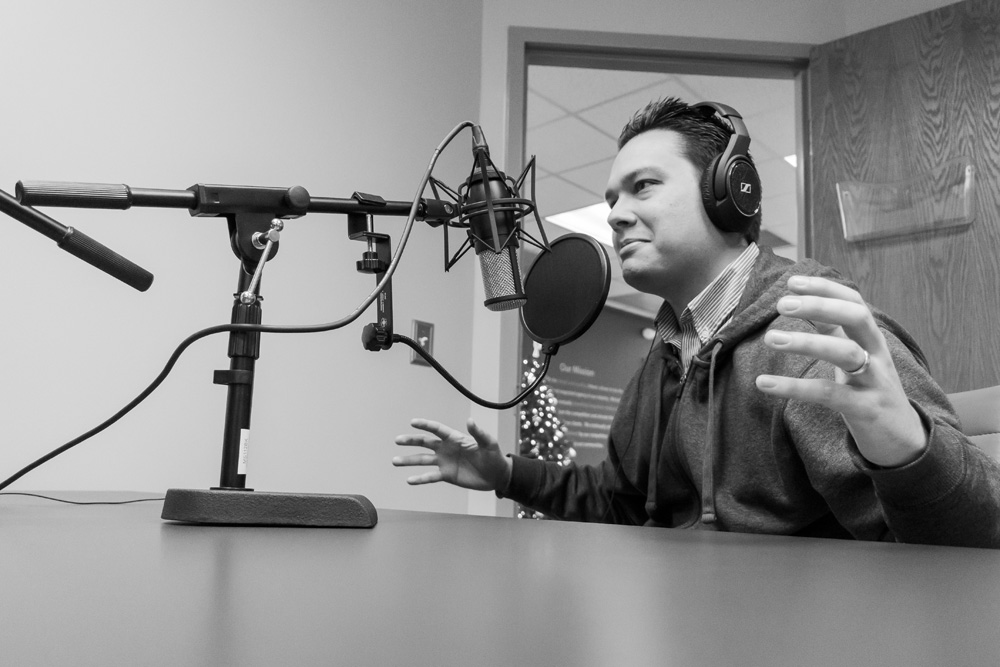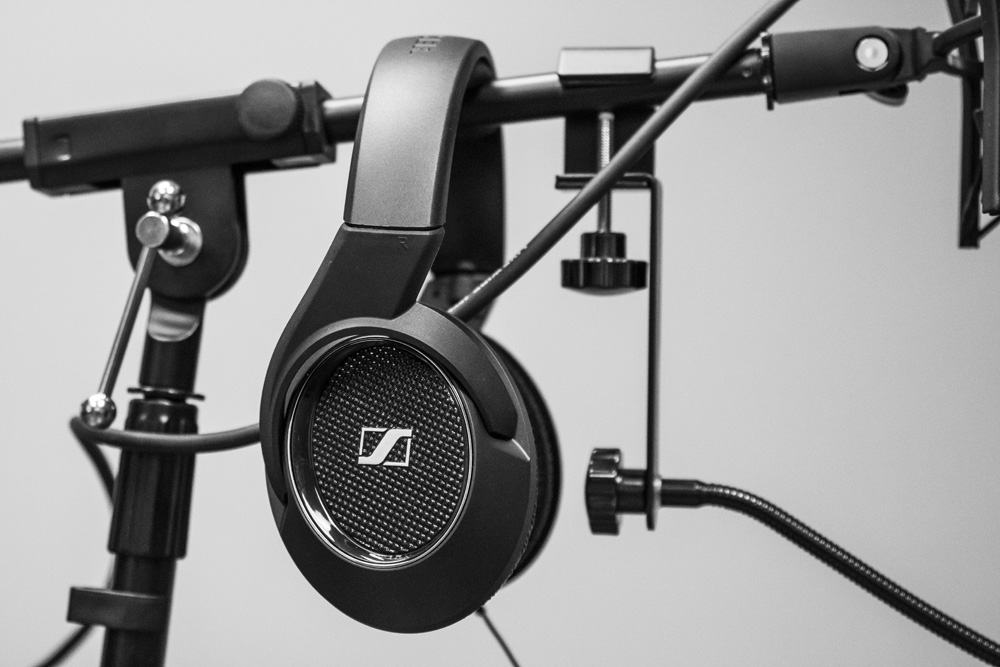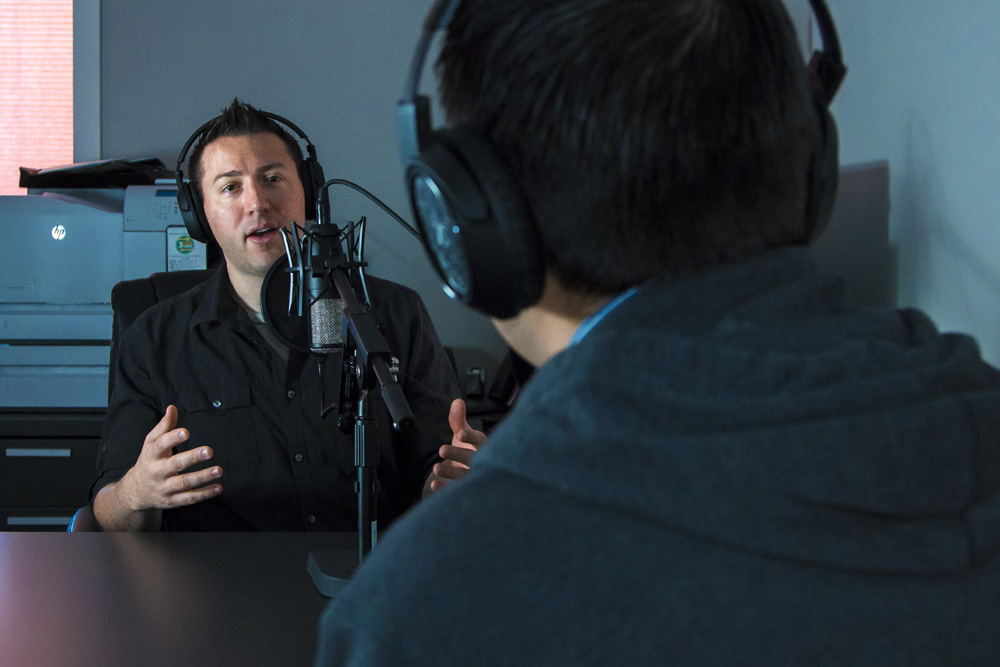Podcasts are a great way to add a personal voice to your brand. They’re an informational “gift” you can give your listeners and customers, all wrapped up in a format that they can listen to at their convenience. But they also offer a big benefit for you and your brand. They keep your name in front of your listeners, your clients, and your clients-yet-to-be. They also help establish you as an expert in your field.
So you want to put together a podcast, but where do you start? Focus your attention on these important criteria, and you’ll be up and talking in no time. Don’t worry, we’ll give you tips for nailing each one.
Tip #1: Include An Intro And Outro
Let’s start at the beginning – and the end – with your intro and outro. Having an intro and outro on your podcast will give it a professional feel and make it memorable. You can use the lead-in to introduce yourself at the beginning of each podcast and the lead-out to promote your website or other media at the end. Including the right voice over with the right music choice will generate a feeling of attachment to your podcast before it even starts!
Tip #2: Create A Hook
Next comes, the hook. No, not Peter Pan’s nemesis. A hook is a request for action at the end of your podcast. Look at it this way, you’re giving listeners some great information, but you should also give them ideas on what to do with it. We’ve found that the most effective and attention-getting hooks ask listeners to:
- Like or rate your podcast on iTunes if they enjoy it and receive some benefit from it.
- Share your podcast with colleagues who may also benefit from it.
- Contact you if they’d like to receive more information about the topic.
- Sign up for your newsletter for more information on related topics.
- Consider purchasing your products, specifically ones that relate to the topic of your podcast episode, then provide detailed information on how they can do it.
- Send in their questions so you can address the topics in which they’re most interested.
Tip #3: Pin Down Your Frequency
Let’s think about the frequency of your podcasts. While the frequency is up to you, for covering most topics, consider a weekly schedule. Think of your podcast like a television show. If you like a particular show, you look forward to it watching it at the same time each week. You might even plan your schedule around it. But if it comes out less frequently, it can fall off your radar. The same goes for podcasts – broadcast less frequently and people will forget to tune in. Forty percent of the top 25 podcasts with a regular posting schedule publish once per week. I personally find that to be an optimum schedule as well.
Yes, you could broadcast more often; and if you like to talk about breaking news or current events, that’s a solid option. But remember that you need to devote a considerable amount of research and production time to your podcast if you want it to be top notch. Pace yourself to avoid broadcast burnout.
Here’s a time-saving tip: Record several podcasts at a time and edit them in batches, then release them on a schedule. This way you can get them out even when you’re on vacation or you’re bogged down with other work tasks.
Tip #4: Timing Is Everything
The most common question clients ask me about podcasting is about the length of a podcast. How long should it be? Studies have shown that the average podcast listener stays connected for 22 minutes, so my answer is 30 minutes or less. Some of your podcasts may only run 20 minutes, while others may go as long as 50 minutes. But if you shoot for 30 and stay in the 20- to 50- minute range, that will probably work well for your audience. If you feel the need longer episodes, consider breaking them up or creating a series.
Tip #5: Set the Tone
Finally, consider your podcast’s tone and think about how you can vary it to make it engaging. No one wants to listen to a monotone voice for 30 minutes. Fluctuations in your voice, pitch, and even speed will keep listeners focused. Show emotion and personality as well to keep your listeners excited to tune in. People attach themselves to personalities, so make sure you have a stand-out personality on your podcast.
Keep these five tips in mind when you create your next podcast, and you’ll have listeners yearning for more.
If you’re yearning to know more about how Artonic can help you create great podcasts – or other inbound marketing services including brand strategies, content, web development, or SEO, click here to connect with us!

